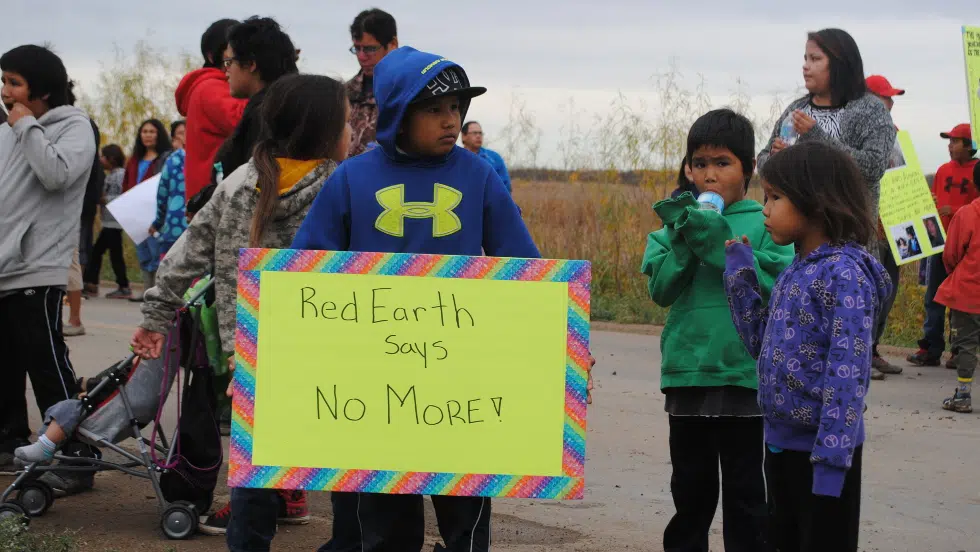
Red Earth Cree Nation takes steps towards dry community
Red Earth Cree Nation took several large steps towards a completely dry community Saturday.
Residents walked along their main road on an awareness walk to honour those they have lost to drug and alcohol abuse.
As they went family members tied white ribbons at the sites of accidents to commemorate the deaths that have struck the community.
Red Earth Reverend Darren Head prayed at each spot and consoled family members.


